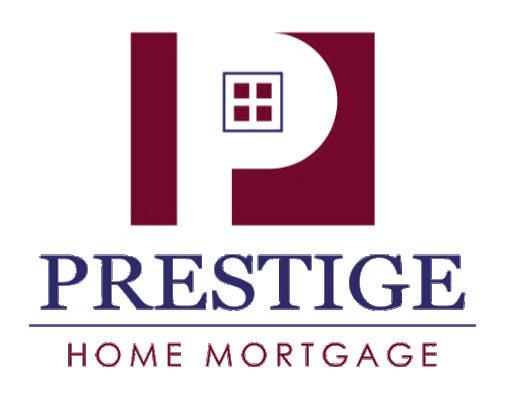






REALTOR® 804.316.7438 taylor@customhomerealty.com taylormoreno.customhomerealty.com
Custom Home Realty 32 Hastings Street, Suite 201 Mendon, MA 01756

During Taylor’s eight years of service in the U.S. Navy, he completed tours in South America, the Persian Gulf, and Iraq. Upon an honorable discharge, Taylor contracted with the U.S. Air Force, enabling him to continue serving his country. He completed joint military missions in Afghanistan and Uganda.
Since his return to the U.S., Taylor has moved multiple times for career opportunities. He has experienced the importance of a strong REALTOR® and also understands the stress involved with home buying and selling. This led him to become an efficient and dedicated agent and enables him to continue serving the needs of others.
Taylor now lives in Mendon, MA, with his wife and children and German shepherd, Cisco.
In planning your real estate needs, please contact Taylor for a FREE consultation. He would value the opportunity to work with you in reaching your goals!
The buying process is a combination of excitement, stress and new experiences, whether you are a seasoned home buyer, property investor or this is your first time buying a home.
The simple fact is that buying a home is a purchase that people rarely make on a regular basis, which is why it is crucial to have an expert consulting you at each step of the process.
This Buyer’s Guide is intended to give you a resource that will help you define your goals, research your options and direct you through the process so that you can make informed decisions.
When you buy a home, it should be about YOU:

• Your dreams
• Your requirements
• Your financial situation
• Your time
• Your lifestyle choices
• Your concerns



Is it a permanent place for you and your family, an investment, or a second home? Whatever the reason, it is important that you buy with an eye on the resale investment potential.
Why has buying a home also become such an investment opportunity?
• No one can predict the future and over the last 25 years, the average price of a home has risen substantially.
• Land has become a decreasing resource, especially in and around major city and cultural hubs, which has created the demand.
• Housing is typically considered to be a stable investment, offering good rates of return.
• Low interest rates over the last 10 years have made mortgages affordable.
• Money that pays a mortgage turns into equity that can be used to finance other opportunities.
• It is not always necessary to sell your home just because you are moving; depending on the equity created, it may be possible to offset the remaining mortgage by renting out the property.
Investing your time to understand your local market and the influences could pay large dividends.
Buying and financing a home are closely related, so it is very important to review your current financial situation to understand how much you can afford.
There are three key components that determine the start of all searches:
1. LOCATION – where do you want to live?
2. TYPE – what type of home do you want?
3. PRICE – what can you afford?
Only you can determine the importance of each. Once you start to research your options, you will soon know if your expectations are realistic.
Why does location matter so much? For starters, you can’t move a home — at least not easily or inexpensively. When you buy a home in a desirable location, it is usually a solid long-term investment.
Perhaps more than ever, location is the key factor in driving price increases. In a strong housing market, homes in particularly desirable areas are more likely to see above average price increases. In weak housing markets, these homes tend to retain their value better.

Understanding the fundamentals – as described below – is not only important but necessary to consider a variety of types and sizes. Each type of property offers its own advantages and disadvantages.
The most popular style and the most solid investment, a free-standing and detached home resting on its own lot offers a greater degree of privacy. Typically, homes and the land are owned completely by the homeowner, and therefore completely their responsibility to manage and maintain.

A single-family home that is joined to another one by a common wall. It can offer many of the advantages of a single-family detached home and is usually less expensive to buy and maintain.
One of several types of single-family homes joined by common walls. It offers less privacy than a single-family detached home but still provides a separate outdoor space. These homes can cost less to buy and maintain but are typically subject to homeowner associations that are responsible for maintenance and management, which can cost an additional fee per month.
Refers to a form of legal ownership as opposed to a style of construction. Condominiums can be high-rise residential buildings, townhouse complexes, individual houses, and low-rise residential buildings. Owners do not have complete control over their property, being subject to homeowner’s association rules; however, the maintenance and management of the building are taken care of, and in many cases, there is an increased level of security.



Whether you have chosen your location or property type based on your budget, it is still important to research the value of homes currently on the market.
The current selling price of a home does not mean that a property is ‘worth’ that amount to you– market conditions and what a buyer is willing to pay for a property affect the true value of the home at any moment in time.
When deciding the value of any property, the following criteria should be considered:
• Location of the property
• Condition of the property
• Buyer demand
• Current prices of similar properties
• Recent sales of competitive properties
• Availability of financing
Ultimately, the value of any property is dependent on what is important to you and whether this is the home that you wish to buy.
After answering the following questions, you will be in a great position to research your housing and mortgage options as well as create the appropriate action plan and timeline for moving forward.
• What do you want from a home?
• Do you want a turnkey home or would you prefer to renovate?
• Choose the top five ‘must-haves.’
• Choose the top five ‘would-likes.'
• Are you pre-approved for a mortgage?
• What can you afford on a monthly basis?
• When is the ideal time to move?


Your REALTOR® should represent you with comprehensive and high-quality service. After all, the seller has their own representative working for their best interests – shouldn’t you have an expert on your side too?


It is important to work with a REALTOR® who is not only committed to working with you but who is also dedicated to finding you the RIGHT home. Your REALTOR® should guide you through the property search – consider their knowledge, experience, and expertise. Check their track record of working with buyers – from finding a home, to negotiating the offer, to helping with financial solutions.
Educating you about the buyer agency and professional responsibilities, including complete disclosure, loyalty, confidentiality, compliance, and accountability.
Taking the time to understand the priority of your requirements – location, property type, size, the must haves, local amenities, etc., even if it changes.
Providing a sophisticated home search process that helps you with your home search by previewing homes, keeping you up-to-date with new homes as they come on the market. What is selling and for how much? And knowing what is for sale both inside and outside the REALTOR® network. Buying is all about having the right knowledge and access at your fingertips.
Viewing homes with you and providing a comparative analysis. Also referring you to expert home inspectors that will provide more of an in-depth analysis and advice.
Presenting consultation in relation to your written offer to purchase a home, with all terms approved by you. Negotiating the best possible price and terms for you and taking care of all the documentation details.
Helping you explore your financing options – referring excellent mortgage professionals so you can make the best possible mortgage decision. Assisting you in finding any home-related services needed.
Keeping you fully informed about all activities that lead to the transaction closing.
No matter your prior experience, circumstance, or reason for buying, it is always in your best interest to be pre-qualified for a loan before starting to search for a home. The current rates, approval, and unexpected challenges should be addressed before you have a serious intention of buying.
A majority of sellers are also now requiring potential buyers to have a pre-approval prior to entering their home.
The pre-approval process involves communicating with a lender and authorizing them to examine your current financial situation and credit history, which results in the amount and rate that you will be able to borrow.
• Knowing what you can afford enables you to plan accordingly – it allows you to understand how much you will be lent and how much you can actually afford to pay each month.
• As a qualified buyer, you will be taken more seriously when you make an offer on a home.
• You are able to take the time to understand the short and long-term implications, allowing you to make informed decisions and research your options.
• Types of mortgages are reviewed in line with your requirements
• Interest rates and terms are discussed
• Credit report is requested
• Personal information is verified
• The mortgage package is submitted to an underwriter for approval
• Title is examined
• Title insurance and survey are conducted
• Borrowers to sign documentation
• Parties are notified of the approval
• Loan documents are completed and sent to the Title Company
• Lender reviews the loan package
• Funds are transferred

John is one of the founding partners of Prestige Home Mortgage, with over 15 years of mortgage experience. He is dedicated to finding the right loan program for each client ranging from FHA Loans, VA Loans, Construction loans, Massachusetts Housing and USDA Loans, Conventional Loans, and First Time Home Buyers. Whether you have low to no credit, your debt to income is high, or any other challenges that YOU believe will prevent you from getting a home loan, give us a call. We will find a loan program that works best for you, or we will put you on a path to get you and your family into your next home. We look forward to hearing from you and working with you.



95% of all buyers use the Internet to start their search for homes — typically taking an average of 12 weeks to research the possibilities they believe their budget can match.
Your Realtor will assist you with narrowing your search by reviewing your ‘must-haves’ and ‘would-likes’ – making recommendations based on their experience and local knowledge.
A REALTOR® also has access to:
• Previewing new properties at REALTOR® open houses.
• Technology that automatically sends you new home matches immediately – so you never miss a new listing.
• Working within their network to find new properties not even listed yet.
• Every home in your preferred community, including “for sale by owner,” discounted brokerages, expired listings, or homes not actually on the market but that are known to suit your requirements.
• Emailing specific home requirements to agents in the area so they know that you are a qualified purchaser.
Newspapers and real estate magazines still provide a platform that features homes. Not every home is listed on the internet, and sometimes your search can miss that hidden gem because it is not online.
Visit open houses and new home developments. You can learn a lot by seeing what is on the market.


In the hunt for a perfect home, it’s easy to forget the important priorities when you see a stunning feature or are overwhelmed by all the choices and homes you have visited.
Use this checklist to help you stay organized and focused on the important criteria during your search:
• Make a comparison chart for when you start viewing:
• Size
• Positioning of the living spaces
• General size of rooms
• Kitchen style and appliances
• Bedrooms
• Bathrooms
• En-suites
• Garage space(s)
• Backyard
• Landscaping
• Condition of roof, exterior
• Storage space
• Natural light
• Do you feel an emotional connection to the home?
• Take a tour of the home.
• Will your furniture fit?
• Floor plans are a great way to see the flow and how changes can be made.
• Check out the true storage space – open cupboards, doors, attics, basements, and storage cabinets.
• Look outside – understand the landscaping and the layout of other homes around the home, traffic, parking, noise, etc.
• Take a moment to envision how you would use the space – does it fit your every day needs?
• How long has the house been on the market?
• Is it priced to sell?
• Compare its price to others sold on the market
• What is the resell potential?
When you have found the right home, it is time to prepare and draft an offer to purchase. This offer protects and represents your interests while remaining legally binding on final acceptance. There are three major steps to an offer, and your REALTOR® will explain the entire process so that you are comfortable with the steps involved.
When your agent writes the offer, it is important for the buyer to keep the dates and the deposit amounts in mind. Once you have an accepted offer, your first Earnest Money Deposit (EMD) is due. Your first EMD will bind the contract. The amount that is written in the offer is determined by several factors that your REALTOR® will talk to you about.
This is a good time to find a real estate attorney so that once you get to the Purchase and Sale Agreement step, you have an attorney ready and available to review the agreement. Your REALTOR® can also provide you with a referral if needed.
• The condition of the home
• Length of time it’s been on the market
• Buyer activity
• Location
• Urgency of the seller
The seller may accept your initial offer, reject your offer, or present a counter offer. The counter offer may differ from your original offer with respect to price, conditions, the closing date, or any other items. Offers can be countered back and forth between the parties until one of you accepts or rejects, concluding the negotiations.
After both parties agree to the terms and conditions of the contract, both parties sign the offer to make it an executed offer. Once executed, the first Earnest Money Deposit is due to the seller.
*Understanding Contractual Terminology – see our glossary of terms.
Attorney Wendy J. Kamens is a partner with the firm. With 25 years of experience, Attorney Kamens' practice focuses on representing buyers, lenders, and sellers in all aspects of residential conveyancing, including negotiating purchase and sale agreements, condominium project review, conversions and complex title matters. Attorney Kamens enjoys spending time educating first time homebuyers and new agents on the conveyancing process, speaking often at seminars and conferences. She excels in holding the hands of homebuyers, from accepted offer through closing, making herself accessible via telephone, email, and text to give a level of comfort to her clients during the exciting, albeit stressful, homebuying process.
480 Turnpike Street | So. Easton, MA 02375 508.238.2510
wkamens@clozers.com www.vieira-digianlaw.com

Now that you have an accepted offer, it's time to inspect your future home. There are several inspectors to choose from — your REALTOR® will always have recommendations for you. The typical fee for a home inspector varies from property type and size, and it is the buyer's responsibility. It is especially important that the home inspection and negotiations are finished by the date stated in the Offer to Purchase. Please keep the date in mind when looking for a home inspector. If you are comfortable delegating this task to your REALTOR®, they will be happy to make the arrangements.
A standard home inspection is a visual examination of the physical structure and major interior systems of a residential building consisting of one to four dwelling units. An inspection can be likened to a physical exam by a physician; however, it should be clearly understood that a home inspection is not to be confused with an appraisal, a building code inspection, a guarantee of any kind, and/or insurance policy on the condition of the property.
During the inspection, the inspector will review the readily accessible exposed portions of the structure of the home, including the roof, attic, walls, ceilings, floors, windows, doors, basement, and foundation, as well as the heating/air conditioning systems, interior plumbing, and electrical systems for potential problems.
Home inspections are not intended to point out every small problem or any invisible or latent defect in the home. Most minor or cosmetic flaws, for example, should be apparent to the buyer without the aid of a professional.
Upon receiving his degree in Real Estate and Construction Management from the University of Denver, Mike worked as a residential construction superintendent managing the construction of 100+ homes. Leveraging this experience, Mike worked as a commercial construction project manager for largescale projects and then shared his passion for the construction process as an architecture and engineering high school teacher.
Mike started HouseMaster Home Inspections MetroWest in 2018 to help buyers, sellers, and homeowners. Not only does Mike have a deep understanding of buildings and all of their systems; he has a special way of educating clients, increasing confidence in their journey forward.


Mike is a proud resident of Bellingham, MA with his wife and two children.
• Buyer & Seller Inspections (Residential & Commercial)

• Maintenance Inspections
• Radon Testing - Air & Water
• Mold Sampling
• Wood Destroying Insect Reporting
MIKE MILHAM
Owner, Inspector 508.883.1872
michael.miham@housemaster.com www.housemaster.com/metrowest
Now that we have made it through the home inspection process, we are now ready to move into the Purchase and Sale agreement process. The Purchase and Sale agreement date is on your initial offer, and it is very important to have the agreement signed by the date stated in the Offer to Purchase.



The seller's attorney now prepares the purchase and sales agreement, which states the final sale price and all the terms of the purchase. The first draft is then sent to your real estate attorney for review. Your attorney will review the agreement and make any necessary changes in your best interest. Remember, your attorney is looking out for your best interest in this transaction. Once both attorneys come to an agreement with the Purchase and Sale agreement, your attorney will contact you to review. Once both parties sign the agreement, the agreement is executed, and the second Earnest Money Deposit is due.* The amount that is written in the offer is determined on several factors that your REALTOR® will advise you about.
*If you are withdrawing your deposit from a 401k or any other retirement account, Please plan accordingly so your funds are available for your Purchase and Sale execution date.
When you buy a home, your lender will want to know whether the house you are buying is worth the amount you have agreed to pay. The lender needs to evaluate the house to discover anything that might negatively or positively impact the home's fair market value. To determine a home's value, lenders require home appraisals for all borrowers.
A real estate appraisal, sometimes referred to as a home appraisal, is an estimate of a property's value. Property value is based on such factors as location, amenities, structural condition, square footage, number of bedrooms, and recent sales of similar nearby properties. Appraisals are conducted for single-family homes, condominiums, and multi-unit dwellings. An appraisal is not a home inspection.
A licensed appraiser conducts the real estate appraisal. The appraiser will do a walk-through of the property, noting anything that might alter the home's value. The appraiser will sketch out the floor plan for the home, take photos of the property, and look for any safety violations.
If there are any such violations, the issues might need to be fixed before the lender approves the loan. The type of loan sometimes determines whether an issue needs to be corrected. For example, FHA and VA loans have unique requirements.
Most lenders will collect the cost of the appraisal from the buyer up front. Even if the appraiser's fee isn't collected beforehand, the cost will be passed on to the buyer as a closing cost for most loan programs. Appraisals typically
cost between $375 and $500; appraisers will charge additional fees if they need to make multiple visits to the property for any reason. Lenders must disclose appraisal and other fees in the loan estimate, which is a three-page form that potential borrowers receive after applying for a mortgage.
Typically, the mortgage lender orders the appraisal as soon as it receives the signed purchase and sale agreement in Massachusetts. Sometimes, the situation requires the lender to order the appraisal sooner. In Massachusetts, it is important that the home buyer receives a satisfactory appraisal prior to the loan commitment date.
If the appraiser's assessment of the home value is less than the agreed upon purchase price, the buyer's financing could be in jeopardy. Either the lender will deny the loan or will require the buyer to increase the amount of their down payment by the difference between the agreed upon price and the lower appraisal value. If the buyer does not have the available cash to increase their down payment, the buyer will need to cancel the transaction before the loan commitment deadline.
Massachusetts buyers need to thoroughly understand the importance of the loan commitment date when purchasing a home and how failing to do so may result in the loss of their deposits.
The failure of a buyer to receive a clean loan committed letter, extend the loan commitment deadline, or terminate the contract with the seller before the loan commitment deadline passes puts them in jeopardy of losing deposits made at the time the Offer to Purchase and Purchase and Sale agreement were signed.
The loan commitment date is the day in the purchase and sale agreement that a buyer's lender (bank, credit union, or mortgage company) must provide a written commitment to the borrower that it will provide the financing for a specific property. The date is usually between 21 and 35 days after the parties have signed an Offer to Purchase contract. It is part of the mortgage contingency clause that is typically in an Offer to Purchase real estate and is carried over and made part of the Purchase and Sale agreement. The mortgage contingency will also have a loan application deadline, which is specific language that states the buyer has to formally apply for a mortgage loan within a certain amount of time from the date of the accepted offer.
If a lender cannot provide a borrower with a commitment letter by the loan commitment deadline specified in the Purchase and Sale agreement, the buyer has two options: (1) ask for and obtain a written extension, or (2) terminate the contract with the seller in order to protect their deposits.
It is important to stay in close contact with your lender and your attorney in the days leading up to the loan commitment date. An extension should be obtained as soon as possible. If it appears your lender will need more time to provide a commitment letter, many real estate lawyers will include language in their extension request that indicates the buyer is terminating the contract in the event the seller doesn't agree to the extension.
In the event that the lender determines the borrower does not qualify for the necessary home loan, the buyer must terminate the agreement before the loan commitment deadline. The seller may request a copy of the denial from the lender; however, the language in the Purchase and Sale agreement may or may not require that the buyer provide the seller with such documentation.
Rest assured that your REALTOR® and attorney will make sure you don't miss any deadlines.

The seller's attorney now prepares the purchase and sales agreement, which states the final sale price and all the terms of the purchase.
Now that both parties have agreed to the conditions based on the purchase and sale, it becomes the responsibility of the legal and financial institutions to prepare all the necessary paperwork. Should there be any issues, your REALTOR® will contact you.
Closing day marks the end of your home buying process, and the following items should be brought to the closing:
• A certified check for closing costs and down payment. Please refer to your mortgage lender or attorney for payment instructions
• Photo IDs
• Social Security numbers
At closing, you will sign all your legal documents, including paperwork relating to your mortgage and the transfer of ownership of the property. A lawyer will facilitate the exchange.
When the deed has been recorded, your agent will deliver your keys. Your attorney will provide you with a copy of the documentation that relates to the property, including a statement of costs, a statement outlining your mortgage terms, your mortgage note, and a copy of your deed of trust. At the end of closing, the deed will be taken and recorded at the county clerk’s office. It will be sent to you after processing.
TIP: Make arrangements to see the new home the day before you close to ensure the home is in the condition per the contract agreement. This is known as your FINAL WALKTHROUGH.
• A fee for running your credit report
• A loan origination fee – lenders charge for processing the loan paperwork
• Appraisal fee
• Underwriting fee – cost of evaluating a mortgage loan application
• Survey fee – covers the cost of verifying property lines
• Homeowner's Insurance Binder
• Recording fee or Property Transfer Tax, which is paid to a city or county in exchange for recording the new land records
• Escrow deposit, which may pay for a couple months’ property taxes and private mortgage insurance
• Attorney or Escrow fees
• Notary fees
• Title insurance, which protects the lender in case the title isn’t clean

• Title search fees, which pay for a background check on the title to ensure there aren’t things such as unpaid mortgages or tax liens on the property
• Home inspection fee
• Pest inspection fee
• Home Warranty
Moving into a new home is an exciting time, but it can also be stressful, whether you are doing it yourself, asking friends for a little help, or hiring professionals. This moving guide will provide you some great insight:
• Hire a moving company or rent a truck. Book early –especially if you are moving at the end or beginning of the month.
• Be sure to get a written confirmation of pricing and the date.
• De-clutter your present home – it’s the perfect time to donate items that you no longer use.
• Order boxes and moving supplies.
• Time to start packing! To make it easier, begin with items in your home you do not use regularly. Pack room by room.
• Be sure to clearly label on the outside of the boxes, which room the box is going, and a quick checklist of the items inside – this makes unpacking so much easier.
• Make a list of the items that need extra attention during moving. Label boxes as fragile if needed.
• As you pack, make notes and photograph items of significant value for insurance purposes.
• Prepare a detailed map and directions for your movers including a cell phone number where you can be reached on moving day.
• Be present when the truck is being loaded and unloaded just in case your movers have questions.
• Change your address – post office, banks, cable, Internet and phone, insurance company, utility company, credit card company, doctor and dentists, and any subscriptions you may have.
• For both the new and old home, make a note of all utility meter readings.
• Pack a travel bag with the items your family may need on moving day, such as toothbrushes, a change of clothing, medications, hairbrushes, soap, toilet paper, etc.
• Arrange for cleaners for the new home and old home. Even if the previous owner hires a cleaner – that extra touch before you arrive makes your new home feel fresh and ready.





1. Going over budget – just because you qualify doesn’t mean you can afford the monthly payments plus all your other ongoing costs.
2. Overlooking the importance of location.
3. Not pre-qualifying for a mortgage.
4. Not shopping for the most suitable mortgage to match your requirements.
5. Not understanding all the terms and conditions: interest rates, length of contracts, mortgage types and rates, etc., before selecting your mortgage.
6. Not understanding the true costs associated with buying your home.
7. Not using professionals to assist in all aspects of your home purchase, including a mortgage advisor, home inspector, lawyer, notary, or moving company.
When you have found the right home. Don’t wait for perfect conditions to buy – they don’t exist.
Get pre-qualified before you start searching, as this will help immensely and prevent disappointment.
There are many great REALTORS® out there. It's important that you choose the right one. Ask for referrals from friends and family who have recently bought a home. After you've received a few referrals, do your research on them. Most REALTORS® have a bio on their company website. You may want to interview one or two of them to see which one you connect better with.
Prioritizing and compromising are necessary elements. Compile a list of ‘must-haves’ and then a list of ‘would-likes’ –you will never find the right home otherwise.
Don’t be afraid to write an offer – however, don’t write an unrealistic offer. Your REALTOR® can help you determine the offer price based on the current market conditions.
It's dependent on how the offer was written and how far along in the process you are. Make sure you go over this with your REALTOR® before submitting an offer.
Trust personal instinct and trusted advisors.


When buying a home, it’s important to understand some of the key concepts and terms. Throughout the purchase process, your REALTOR® will be available to explain any unfamiliar terms you encounter. That said, here is a short list of terms you’ll want to know:
Abstract Of Title – A complete historical summary of the public records relating to the legal ownership of a particular property from the time of the first transfer to the present.
Adjustable Rate Mortgage (ARM) – Also known as a variable-rate loan, an ARM is one in which the interest rate changes over time.
Agreement of Sale – Also known as contract of purchase, purchase agreement, or sales agreement according to location or jurisdiction. A contract in which a seller and buyer agree to transact under certain terms spelled out in writing and signed by both parties.
Amortization – The process of reducing the principal debt through a schedule of fixed payments at regular intervals of time, with an interest rate specified in a loan document.
Appraisal – An appraiser’s estimate of the market value of a property based on local market data and the recent sale prices of similar properties.
Assessed Value – The value placed on a home by municipal assessors for the purposes of determining property taxes.
Closing – The final steps in the transfer of property ownership. On the Closing Date, as specified by the sales agreement, the buyer inspects and signs all the documents relating to the transaction, and the final disbursements are paid. Also referred to as the Settlement.
Closing Costs – The costs to complete a real estate transaction in addition to the price of the home may include points, taxes, title insurance, appraisal fees and legal fees.
Closing Date – This is usually the date that the legal ownership of the property transfers from the seller to the buyer.
Conditions or "Subjects" – Items that are usually put in place to protect a party’s interests upon selling or buying the property and refer to things that must occur or be in place before the sale closes. Some of these conditions could be “subject to financing approval,” “subject to the buyer’s house selling,” “subject to seller finding suitable housing,” etc.
Contingency – A clause in the purchase contract that describes certain conditions that must be met and agreed upon by both buyer and seller before the contract is binding.
Counter Offer – An offer made in response to a previous offer that rejects all or part of it while enabling negotiations to continue towards a mutually-acceptable sales contract.
Conventional Mortgage – One that is not insured or guaranteed by the federal government.
Debt-to-Income Ratio – A ratio that measures total debt burden. It is calculated by dividing gross monthly debt repayments, including mortgages, by gross monthly income.
Deposit – The amount of money provided from the buyer to the seller as a token of the buyer’s assurance and intention to buy the property involved. The deposit is applied against the purchase price of the home once the sale has closed. Your agent can assist you in proposing a certain and appropriate amount for the deposit.
Disclosures – Disclosure statements, which can come in a variety of forms, are the buyer’s opportunity to learn as much as they can about the property. Seller disclosures range from knowledge of issues with the home. They serve to inform buyers; they can protect the sellers from future legal action. It is the seller’s chance to lay out anything that can negatively affect the value, usefulness, or enjoyment of the property.
Down Payment – The money paid by the buyer to the lender at the time of the closing. The amount is the difference between the sales price and the mortgage loan. Requirements vary by loan type. Down payments less than 20% usually requires mortgage insurance.
Earnest Money Deposit (EMD) – A deposit given by the buyer to bind a purchase offer and which is held in escrow. If the property sale is closed, the deposit is applied to the purchase price. If the buyer does not fulfill all contract obligations, the deposit may be forfeited.
Equity – The value of the property, less the loan balance, and any outstanding liens or other debts against the property.
Easements – Legal right of access to use a property by individuals or groups for specific purposes. Easements may affect property values and are sometimes part of the deed.
Escrow – Funds held by a neutral third party (the escrow agent) until conditions of a contract are met and the funds can be paid out. Escrow accounts are also used by loan services to pay property taxes and homeowners insurance.
Fixed-Rate Mortgage – A type of mortgage loan in which the interest rate does not change during the entire term of the loan.
Home Inspection – Professional inspection of a home, paid for by the buyer, to evaluate the quality and safety of its plumbing, heating, wiring, appliances, roof, foundation, etc.
Home Warranty – Service contract that covers the repair or replacement of home system components and appliances that break down.
Homeowners Insurance – A policy that protects you and the lender from natural disasters and liabilities, such as a visitor injury or damage to your personal property.
Inclusions and Exclusions – Specifications within the offer that detail the items to be included or excluded from the purchase of the property.
Typical inclusions are appliances, window coverings, fixtures, and decorative pieces.
Lien – A claim or charge on property for payment of a debt. With a mortgage, the lender has the right to take the Title to your property if you don’t make the mortgage payments.
Market Value – The amount a buyer would pay a seller for a home. An appraised value is an estimate of the current fair market value.
Mortgage Insurance – Purchased by the buyer to protect the lender in the event of default (typically for loans with less than 20% down). Available through a government agency like the Federal Housing Administration (FHA) or through private mortgage insurers (PMI).
Offer to Purchase – A detailed written document which makes an offer to purchase a property, and may be amended several times in the process of negotiations. When signed by all parties involved in the sale, the Purchase Offer becomes a legally-binding sales agreement.*
Possession and Adjustment Dates – When the buyer takes possession as specified in contract of purchase sale and adjustments are made for prepaid taxes, maintenance fees, etc. They are usually the same date.
Possession Date – The date, as specified by the sales agreement, that the buyer can move into the property. Generally, it occurs within a couple days of the Closing Date.
Pre-Approval Letter – A letter from a mortgage lender indicating that a buyer qualifies for a mortgage of a specific amount. It also shows a home seller that you’re a serious buyer.
Principal – The amount of money borrowed from a lender to buy a home or the amount of the loan that has not yet been repaid. Does not include the interest paid to borrow.
Purchase Price – The amount that the buyer is offering to pay for the property, usually dependent on market conditions and may differ from the seller’s current asking price. There is no “normal” amount or percentage that a price will differ from its asking price as the final price will be determined by many factors, including the seller’s motivation and how close the asking price is to actual “market value.”
Terms – An offer includes certain “terms,” which specify the total price offered and how the financing will be arranged, such as if you will arrange your own with a financial institution or mortgage broker or if you wish to take over the seller’s mortgage (assumability).
Title – The right to, and the ownership of, property. A Title or Deed is sometimes used as proof of ownership of land. Clear title refers to a title that has no legal defects.
Title Insurance – Insurance policy that guarantees the accuracy of the title search and protects lenders and homeowners against legal problems with the title.
Truth-In-Lending Act (TILA) – Federal law that requires disclosure of a Truth-In-Lending statement for consumer loans. The statement includes a summary of the total cost of credit.
Title Search – A historical review of all legal documents relating to ownership of a property to determine if there have been any flaws in prior transfers of ownership or if there are any claims or encumbrances on the title to the property.
*The Purchase Offer and contract procedures vary by region.
Each office independently owned and operated. Copyright © 2022
